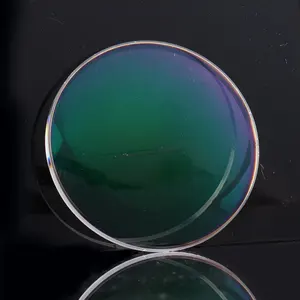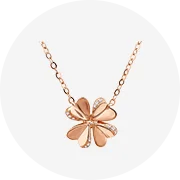
Fast Delivery Hot Sell 1.56 Hmc Green Coating Optical Glasses Lens










Japan is renowned for its precision engineering and innovative technology, and this expertise extends to a wide range of optical products, including lenses. Optics lenses from Japan are crafted using advanced manufacturing techniques that ensure exceptional quality and reliability. These lenses are sought after by professionals in various industries, such as photography, laser technology, and medical equipment, where precision and clarity are paramount.
The fundamental principle behind an optical lens is refraction, which occurs when light passes from one medium to another. This refraction is governed by Snell's Law, which states that the angle of incidence of the light ray, when moving from one medium to another, is related to the angle of refraction. The shape of the lens—whether convex or concave—determines its refractive properties. When parallel light rays pass through a lens, they converge at a focal point if the lens is convex or diverge if it's concave.
Japan's reputation in the production of lenses is built on a commitment to precision manufacturing, stringent quality control measures, and a deep understanding of optical science and technology. These principles are reflected in the wide array of lens types and materials used in products ranging from cameras to medical devices. For instance, Nikon's camera lenses are praised for their sharpness and color accuracy, a result of their precise construction and the application of cutting-edge optical technology.
Optics lenses from Japan come in various types to suit different requirements. Here are some examples:
Single Vision Lenses: These are the simplest form of lenses that provide a single focal point. They are commonly used in eyeglasses for correcting myopia (nearsightedness), hyperopia (farsightedness), or astigmatism.
Bifocal Lenses: These lenses have two distinct focal points, one for near vision and another for distance vision. They are often prescribed to individuals with presbyopia, a common age-related condition that makes it difficult to focus on close-up objects.
Progressive Addition Lenses: Also known as multifocal lenses, these have a gradual change in power from the distance portion to the near portion. They cater to individuals who require correction for intermediate and near distances without switching between multiple pairs of glasses.
Aspheric Lenses: These have a more complex surface profile that can reduce aberrations and are used in applications requiring high precision, such as advanced optical systems.
Spherical Lenses: Spherical lenses have a uniform curvature across their surface and are often used in simple magnifiers or microscopes where a single focal point is sufficient.
Selecting the right optics lens from Japan involves considering several factors that align with your business needs. The intended application – be it in cameras, medical devices, or industrial processes – will guide your choice. For instance, if your business specializes in high-quality photography equipment, you may opt for specialized camera lenses made by Japanese manufacturers known for their superior quality.
Additionally, the material composition of the lens plays a crucial role in its performance and longevity. Choices range from plastic for cost-effectiveness to more durable materials like mineral glass for precision applications. For medical devices where clarity is paramount, MR-8 or MR-7 might be selected due to their high light transmission and low dispersion.
The function of the lens must also be taken into account. Some applications require custom-designed lenses that can handle specific wavelengths or shapes. In such cases, suppliers on Alibaba.com can provide tailored solutions that meet these exacting specifications.
Lastly, consider any additional features that may be necessary for your application. For example, if you require anti-blue-ray or UV protection for your product's lens, ensure that these properties are included in your selection criteria. The type of coating can also affect performance; options like super hydrophobic or anti-reflective coatings may be necessary depending on environmental conditions and desired image quality.
For businesses seeking premium-grade optics lenses from Japan, Alibaba.com presents an unparalleled marketplace that connects them with reputable suppliers offering a vast array of products. The platform's extensive network ensures that businesses can find nearly every type of optic they require—from standard single-vision lenses to specialized bifocals and even progressive lenses—all tailored to meet diverse customer needs.
Alibaba.com's commitment to facilitating global trade is evident through its user-friendly interface and features that support seamless transactions on both desktop and mobile devices. The site's multilingual support further enhances accessibility for businesses worldwide. With services like Trade Assurance providing payment protection until delivery completion, buyers have peace of mind when ordering in bulk or even single pieces of more expensive commercial products.
Choosing Alibaba.com as your source for Japanese optics lenses means tapping into a wealth of options while benefiting from a platform that prioritizes quality and reliability in international trade solutions. Whether your business is looking to stock up on trendy designs or source high-tech precision optics for industrial applications, Alibaba.com stands as an invaluable resource in today's competitive marketplace.
Single vision lenses correct vision at a single fixed focal point, while multifocal lenses provide a range of focal points for different viewing distances. The choice between them depends on the wearer's need for near or distance vision correction.
The choice of lens material should be based on your business requirements. For instance, mineral lenses are more scratch-resistant but can be heavier, while plastic lenses are lighter and offer good UV protection. Consider the balance between durability and lens weight when making a selection.
Lens coatings such as anti-blue light, UV protection, and super hydrophobic are available to enhance visual comfort and protect the eyes from harmful blue light and water damage.
Yes, lens color can have an impact on the application of the optics lens. For example, green lenses are used for outdoor activities to reduce glare and improve contrast, while clear lenses are preferred for vision correction indoors or when a neutral view is needed.
For digital device applications like computer screens or e-readers, aspheric lenses and certain coatings are recommended to ensure clear vision and reduce eye strain during long periods of use.
When choosing between spheric and aspheric designs, consider the intended application; aspheric lenses provide a wider field of view with less distortion but may be more complex and costly than spherical lenses.
Selecting the right vision effect depends on the type of correction required (near or distance vision), the material of the lens (plastic, MR-7), and the design features like shape and thickness that align with your application's needs.
Lens thickness is crucial for comfort and proper fit within frames or mounts. It must be appropriate for the intended use—thinner lenses are typically needed for fashion eyewear, while thicker lenses are essential for safety eyewear to provide adequate protection.
While Alibaba.com does not directly provide custom-made products, many suppliers on the platform offer customization options to meet specific business requirements such as lens material, design features, and vision correction needs.
Polarization in optics lenses reduces glare reflected from surfaces such as water or glass, making it especially beneficial for outdoor or sports-related activities where this type of light polarization is beneficial for visual comfort.
Optics lenses are designed to focus light; their function is specific to their application, whether that's in magnification for reading or correction for vision issues. Other types of lenses may have different functions like filtering light or protecting against radiation.